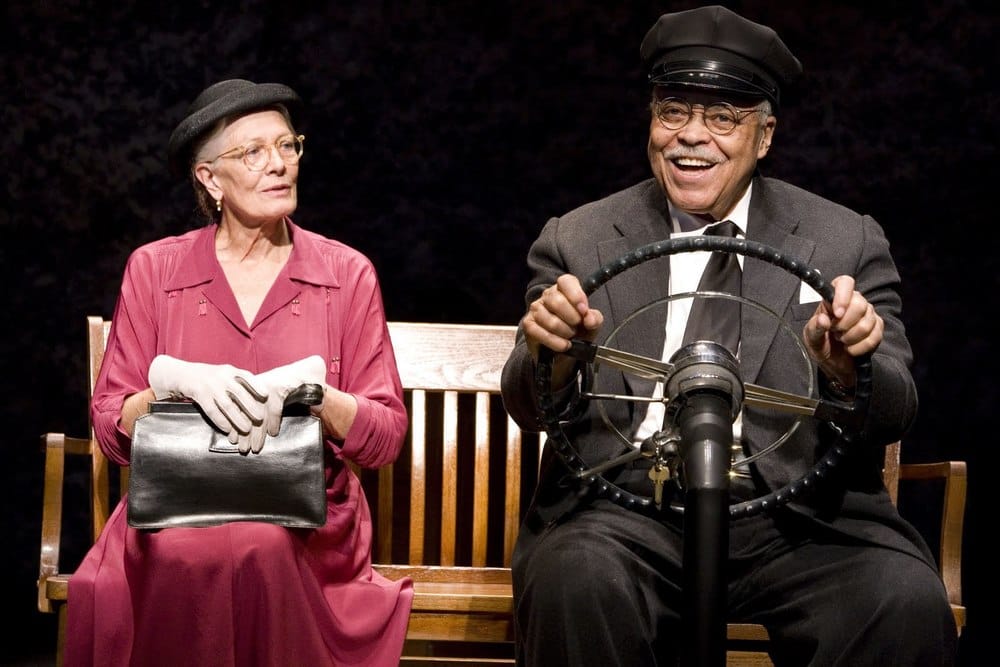From screen to stage, Miss Daisy hits the Wyndhams
Film classic returns to its roots, with Jones in driving seat

Vanessa Redgrave and James Earl Jones are acting royalty, both on stage and screen, whose careers have spanned decades and yet show no sign of slowing down. Standing tall in both stature and talent even at their admirable ages of 78 (Redgrave) and 80 (Jones), the two veterans still command the stage like never before, and it is precisely their excellent performances that make this production of “Driving Miss Daisy” worth every penny, which is why this very limited 12-week engagement in Wyndhams Theatre, Leicester Square is an experience you cannot afford to miss.
It would be hard not to compare any adaption of “Driving Miss Daisy” to the Oscar-winning hit film which starred the sublime Jessica Tandy and Morgan Freeman in the lead roles, which Redgrave and Jones take over respectively. In the role of Miss Daisy Werthan, a frail, old yet proud and tough Southern Jewish woman, Tandy obviously has the upper hand with her more delicate features. Redgrave on the other hand, towers at an astonishing 5’11”somehow not immediately convincing as a woman nearing death and someone who will have to deal with the effects of Alzheimer’s.
But fear not, for Redgrave’s subtle yet hugely effective changes in both her posture and speaking voice throughout the play make it obvious of Miss Daisy’s deteriorating condition. She starts off as a proud woman in a comfortable position who hates the idea of having to hire a chauffeur. After a bad crash for which Miss Daisy will forever blame her car rather than her weakening driving skills, her concerned son, Boolie (the equally fantastic Boyd Gaines in a crucial supporting role), eventually manages to employ a willing African-American driver, Hoke Colburn (Jones). And so begins an unlikely yet touching story of friendship that spans an era, having profound influence on both characters.
Redgrave adds so much detail, depth and it is obvious she has given a lot of careful attention to her performance
This is a play that thrives on subtleties. For those familiar with the film, you will remember that racism, prejudice and civil rights movements are what it focuses heavily on. For a play on a stage and a budget with limitations, the scope cannot be too broad, and even the cast only consists of the modest yet always-reliable three. We do see numerous brief projection-reels that show the political changes in hate-filled America that are slowly moving towards racial equality, but much is left out. The social commentary underlying the script is merely hinted at, although never quite fully addressed. This is neither a compliment nor a criticism of the play – it’s a modest production more interested in the spot-on actors.
So does it really matter that Redgrave doesn’t quite hit all the unique distinctions of a Southern accent? Not at all. She adds so much detail, depth and it is obvious she has given a lot of careful attention to her performance. It is Miss Daisy’s gradual decline that she portrays so well on stage that there is no need for cheesy music (of which there is some, to fill the gaps of scene changes) to have that heart-wrenching finale. Her head gradually sinks into her shoulders, her walks become slower and more uneven, and she has difficulty walking down a flight of stairs. As the play begins, Redgrave shows Miss Daisy’s feisty side by fighting off her son’s insistence to hiring a chauffeur whilst making a pie, both tasks Redgrave marvellously masters in one clean swoop.
Miss Daisy is initially sceptical of having a stranger in her home; she even accuses Hoke of stealing a can of salmon, in a scene of genuine comedy in which Redgraveshines yet again, standing so upright and self-confident, holding the empty can and pointing it at Hoke as if she’s about to stab him with it. But the wise and warm Hoke turns out to be invaluable company as time goes by, whilst of course being an excellent, reliable driver. Jones gives a firmer, more reserved performance, something that plays off perfectly with Redgrave’s more frantic, wordy one. Despite the abuse and humiliation he must have faced over the years because of his colour, Hoke is an unquestionably dignified man, a perfect gentleman who stands beside a woman who is somewhat oblivious to what is going on in the outside world, without wanting to admit that she is not perfect.
In a short period of time (the play wraps up neatly at around 90 minutes), director David Esbjorson has a lot to cover, and he chooses to go about the material with many time jumps, occasionally reminding the audience of what year we’re in with clumsy captions that are projected in the background. The result is many narrative breaks; patchy work and a disjointed structure that make many scenes feel episodic. But the each scene has merit of its own, thanks largely to the unquestionably good duo. The final scene has impact, perhaps not as powerful as what the film managed to capture, but it’s quiet and potent in its own way and certainly puts a beautiful end to a low-key, memorable production.
Driving Miss Daisy runs at the Wyndhams Theatre until December 17






